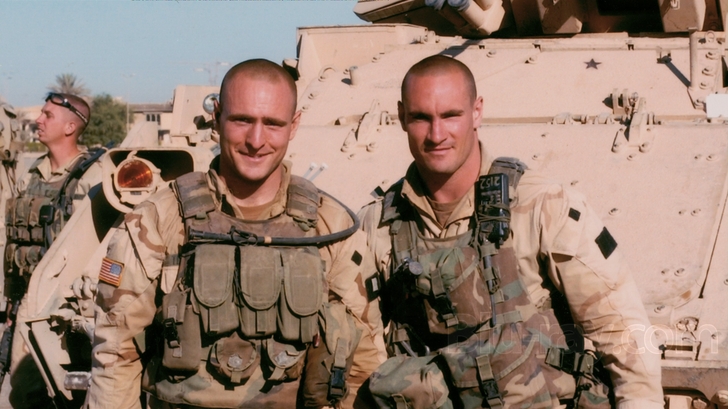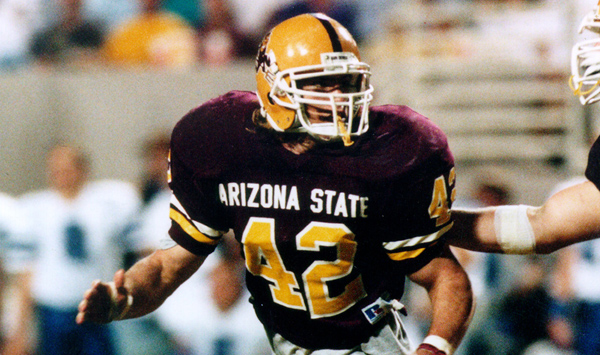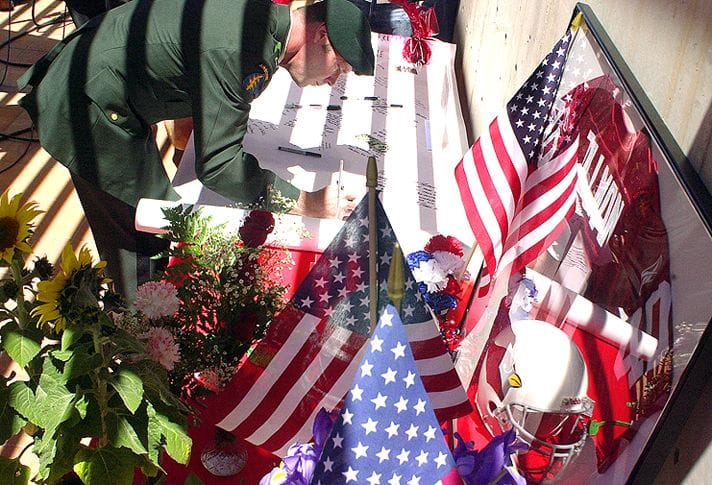
Yesterday marked the 10-year anniversary of Pat Tillman’s death. By now you know very well his backstory. Tillman, a Pro Bowl caliber player for the Arizona Cardinals, from1998 and 2001, signed up for the United States Army after the September 11, 2001 terrorist attacks. He left a $3.6 million contract offer from the Cardinals on the table in order to help protect a nation that had just come under attack.
To Tillman, it was rather simple…
He felt the need to serve. He felt that it was his duty to turn away from the riches and lavish lifestyle that came with being a NFL football player. It was this type of passion, dedication and altruism that has made Tillman a hero in the minds of many. For him, it was all about passion, love and dedication…
Passion is what makes life interesting, what ignites our souls, fuels our loves and carries our friendships, stimulates our intellect and pushes our limits.
It wasn’t religion that brought Tillman to this decision. He was a self-acclaimed Atheist. It wasn’t love for the red state, that some have so ignorantly pointed to, as Tillman was a passionate liberal. It wasn’t his dedication for a fight that he believed to be just. Tillman was reportedly against our involvement in Iraq, instead believing that we as a nation should have gone after the real terrorists who attacked the United States in 2001. It was a personal decision based on so much more than politics or the generic divisions that seem to define society today.
His love for nation was seeded deeper than that. It was embedded in the notion that brothers protect brothers. That Americans, who have the ability, protect their fellow Americans.
It was a patriotism that we don’t see much in today’s politically and idelogically driven society.
At a time when many young Americans decided to give up everything in order to join the fight against terrorism, Tillman became the face of a generation that was let down by leaders in Washington D.C.
When the brave young soul passed away in Afghanistan on April 22, 2004, the first reports that came state side were that he died a hero, saving lives of his fellow soldiers in a firefight with the enemy.

This seemed very much to be the “happy ending” that our government wanted. While not necessarily rooting for the death of a soldier, it needed to put a face on those fighting for the freedom of this nation. It needed one man to stand up and show himself to be the face of the War on Terrorism. In death and as a hero, Tillman proved to be that man.
Unfortunately for leaders in D.C., this tightly fitting story simply wasn’t true.
According to a Washington Post report in 2004, Tillman was victim of friendly fire, an incident that ultimately cost him his life.
Pat Tillman, the former pro football player, was killed by other American troops in a “friendly fire” episode in Afghanistan last month and not by enemy bullets, according to a U.S. investigation of the incident.
This doesn’t make him any less of an hero. It’s an unfortunate circumstance that too many soldiers found themselves in during the height of the war in Afghanistan. It also didn’t fit tightly with what the powers to be wanted us to believe.
Tillman’s father had this to say to The Washington Post following what appeared to be a cover up within the military power elite.
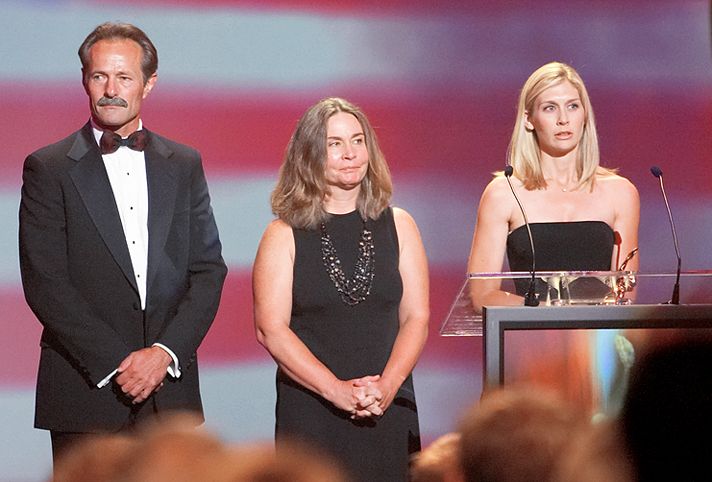
After it happened, all the people in positions of authority went out of their way to script this…They purposely interfered with the investigation, they covered it up. I think they thought they could control it, and they realized that their recruiting efforts were going to go to hell in a handbasket if the truth about his death got out. They blew up their poster boy.
In the very same piece, Tillman’s mother had a more personal approach to the situation that had rose up in the wake of her son’s death.
Pat had high ideals about the country; that’s why he did what he did…The military let him down. The administration let him down. It was a sign of disrespect. The fact that he was the ultimate team player and he watched his own men kill him is absolutely heartbreaking and tragic. The fact that they lied about it afterward is disgusting.
The Tillman’s weren’t interested in their five minutes of fame. Instead, they wanted to know the truth that resulted in the death of their son. After all, whenever tragedy strikes a family, that’s one of the first things that comes to mind. It enables loved ones to come to some sort of closure. It allows them to grieve in peace and in private. Sadly, the United States Government wasn’t interested in this.
Tillman’s sacrfice for nation cannot go unnoticed. He didn’t necessarily believe in the war, wasn’t a supporter of then President George W. Bush and didn’t represent the Christian beliefs that so many power elites within this nation outwardly preach to be the guiding light in their own lives. He wasn’t a member of the right-wing propaganda machine, but he did end up being used as a tool for said machine.
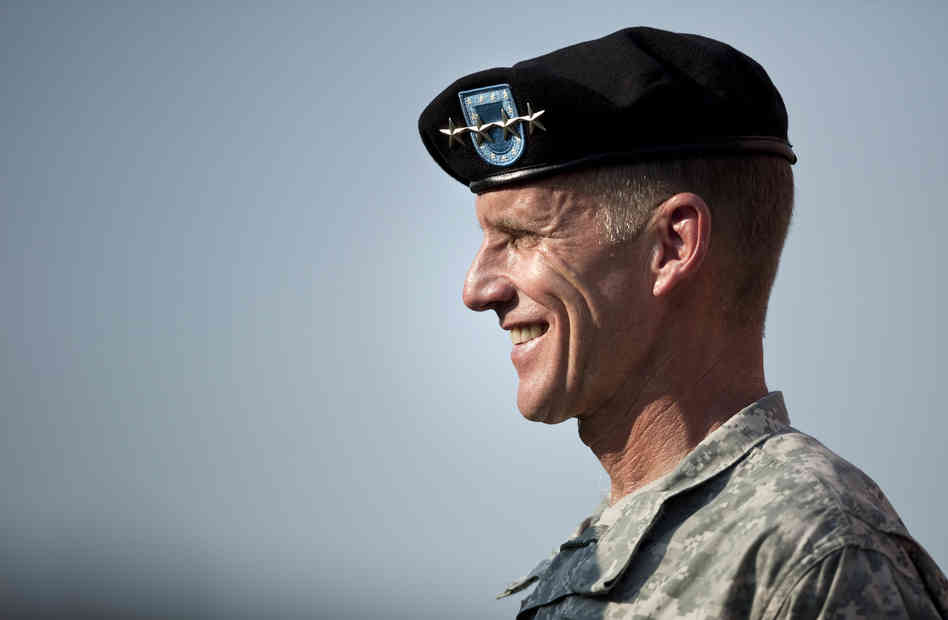
In this, the government of our great nation should be held to account. In this, Tillman’s story is one that should be told to generations of Americans from here on out in order for free-thinking individuals to come to their own conclusion about the sometimes corrupt practices of those who boast such powerful positions within this nation.
That said, this shouldn’t be the story. This isn’t red against blue, liberal against conservative or Christian against Atheist. It’s much bigger than that.
It’s the story of one man who gave everything up in order to follow his heart. Who gave everything up in order to defend a nation that he seemed to have some issues with, at least from the perspective of what he believed it was doing on an international scale.
It didn’t matter to Tillman.
What mattered to him was the nearly 3,000 souls who died on September 11, 2001 and what he was going to do about it.
Pat once spoke about how “people were going to know who he was” after the Arizona Cardinals made him a seventh-round pick. When posed with the comment that he should relax with his dreams, those around him realized he wasn’t talking about football.
See, Tillman knew long before he enlisted in the Army that he was destined for something larger than sports.
In a Sports Illustrated article by Gary Smith back in 2006, the writer describes how Tillman knew what his destiny was going to be.
Everybody who thought he’d enlisted purely out of patriotism, they missed reality by a half mile. Sure, he loved America and felt compelled to fight for it after more than 2,600 people at the World Trade Center were turned to dust. But his decision sprang from soil so much richer than that. The foisting of all the dirty work onto people less fortunate than an NFL safety clawed at his ethics.
He had uncles and grandfathers on both sides who’d fought in World War II and the Korean War, one who’d taken a bullet in his chest, another who’d lost a finger and one who’d been the last to leap out of a plane shot from the sky. On a level deeper than almost any other American, he’d reaped the reward of those sacrifices: the chance his country afforded him to be himself, all of himself.
It wasn’t that Tillman didn’t believe he deserved the riches that the National Football League would have afforded him. His goal, his life and his ultimate reality was much more than football itself. It was much more than living the high life while others (less fortunate in his own words) were off fighting for the freedom that he was living.
My great grandfather was at Pearl Harbor and a lot of my family have given up and gone to fight in wars…and I haven’t done a damn thing. As far as laying myself on the line and that, I have a great deal of respect for those who have and for what the flag stands for.
This is the feeling that most of us who grew up around the same time as Tillman had. We understood the gravity of the situation following the terrorist attacks and weren’t willing to sit back and let what we considered evil to roam around our part of the world and kill our loved ones. Manyof our generation and the generations that followed made that personal decision. It was a decision based on our own beliefs and ideals. A decision rooted in the fundamental reality that pacifying those who were hell bent on destroying our lives would only end up destroying everything we believed to be true. It wasn’t for the gratification of being seen as a hero. Talk to one vet from that war that will openly discuss his/her involvement without being posed a question beforehand. It simply won’t happen. Tillman was in nearly every aspect the same in this regard.
Unlike most of us from that generation (I was 19, Tillman 24), he gave up millions in order to sacrifice his livelihood and existence in order to serve a higher purpose. You wouldn’t see many quotes or writings from Tillman surface following his death in Afghanistan 10 years ago this week. He chose to do his talking on the football field and eventually at the end, on the battlefield.
What purpose did his life serve? How has he made a difference to those who look up to him as a hero? Who look still up to him not because of the way he died, but the decision that put him in harm’s way to begin with and the way he lived.
We all seek a higher purpose in life. It’s part of the human makeup. Why are we here? What is our purpose? Aren’t we destined for better things? In this, Tillman served as a representation that those very personal and sometimes egocentric thoughts should be put on the back burner in order to serve a higher purpose.
In his own words, Tillman seemed to define this to a T…
My life at this point is relatively easy…It is my belief that I could continue to play football for the next seven or eight years and create a very comfortable lifestyle. My job is challenging, enjoyable and strokes my vanity enough to fool me into thinking it’s important. For more reasons that I care to list, my job is remarkable. However, it is not enough.
Immediately after enlisting in the Army, Tillman wrote a letter to his family informing them of his decision, via ABC.
For much of my life I’ve tried to follow a path I believed important…Sports embodied many of the qualities I deem meaningful: courage, toughness, strength. These last few years, and especially after recent events, I’ve come to appreciate just how shallow and insignificant my role is. I’m no longer satisfied with the path I’ve been following … it’s no longer important.
With the invention of the new social media world in the years following Tillman’s death, it has become readily apparent to this one scribe that athletes, in general, haven’t necessarily embodied what this hero represented.
This above-the-law mentality seems to have captivated those who most of us look up to. Whether it’s the latest DUI arrest, weapons charges, domestic violence incident or PED suspension…the blurbs of athletes acting the part of lawless citizens have been aplenty around the professional sports world.
Do they not know the sacrifice Tillman made so that they can roll around in the money and lavish lifestyle they currently exist in? This isn’t to say that athletes should ultimately come to the conclusion that they serve a higher puporse or should enlist in public service. That would be utterly foolish in the grand scheme of things. Instead, it’s to indicate that maybe they should represent their jersey, their team and their community off the field the way Tillman represented the U.S. Military fatigues that he died in. With respect, honor, dignity and a sense of humbleness. After all, it is a humbling experience to realize we are all, no matter our perceived societal importance, just one small potato in a world filled with millions of potato fields.
And that’s the ultimate point. We exist in this world because of Tillman and those before him. Those who fought and died for us. Those who sacrificed everything and perished on the battlefields of Iwo Jima, Antietam and Saipan. They never asked for us to think about them and their sacrifices as we go on about our daily lives. Instead, all they asked is that their sacrifice wasn’t in vain.
That’s the least we can do to honor Tillman 10 years after his death.
Photo: Associated Press
